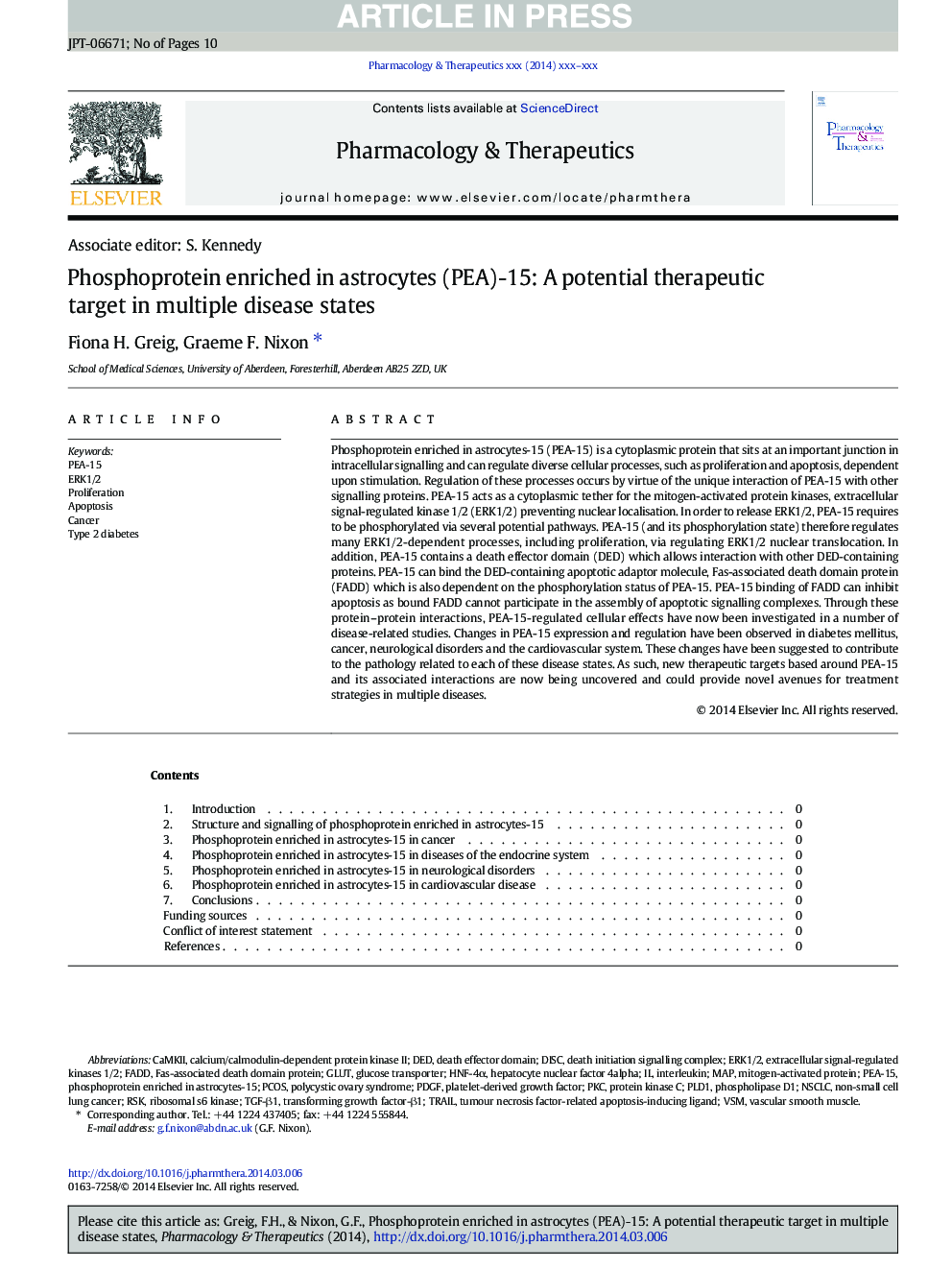| Article ID | Journal | Published Year | Pages | File Type |
|---|---|---|---|---|
| 5844003 | Pharmacology & Therapeutics | 2014 | 10 Pages |
Abstract
Phosphoprotein enriched in astrocytes-15 (PEA-15) is a cytoplasmic protein that sits at an important junction in intracellular signalling and can regulate diverse cellular processes, such as proliferation and apoptosis, dependent upon stimulation. Regulation of these processes occurs by virtue of the unique interaction of PEA-15 with other signalling proteins. PEA-15 acts as a cytoplasmic tether for the mitogen-activated protein kinases, extracellular signal-regulated kinase 1/2 (ERK1/2) preventing nuclear localisation. In order to release ERK1/2, PEA-15 requires to be phosphorylated via several potential pathways. PEA-15 (and its phosphorylation state) therefore regulates many ERK1/2-dependent processes, including proliferation, via regulating ERK1/2 nuclear translocation. In addition, PEA-15 contains a death effector domain (DED) which allows interaction with other DED-containing proteins. PEA-15 can bind the DED-containing apoptotic adaptor molecule, Fas-associated death domain protein (FADD) which is also dependent on the phosphorylation status of PEA-15. PEA-15 binding of FADD can inhibit apoptosis as bound FADD cannot participate in the assembly of apoptotic signalling complexes. Through these protein-protein interactions, PEA-15-regulated cellular effects have now been investigated in a number of disease-related studies. Changes in PEA-15 expression and regulation have been observed in diabetes mellitus, cancer, neurological disorders and the cardiovascular system. These changes have been suggested to contribute to the pathology related to each of these disease states. As such, new therapeutic targets based around PEA-15 and its associated interactions are now being uncovered and could provide novel avenues for treatment strategies in multiple diseases.
Keywords
PLD1TGF-β1VSMPEA-15RSKHNF-4αDEDPCOSPDGFGLUTCaMKIIFADDDISCPKCERK1/2Ribosomal s6 kinaseinterleukinTransforming growth factor-β1ProliferationGlucose transporterApoptosisdeath effector domainType 2 diabetesCancerNSCLCNon-small cell lung cancerPolycystic ovary syndromeVascular smooth muscleplatelet-derived growth factorPhospholipase D1TRAILtumour necrosis factor-related apoptosis-inducing ligandmapFAS-associated death domain proteinmitogen-activated proteincalcium/calmodulin-dependent protein kinase IIProtein kinase CExtracellular signal-regulated kinases 1/2
Related Topics
Health Sciences
Pharmacology, Toxicology and Pharmaceutical Science
Pharmacology
Authors
Fiona H. Greig, Graeme F. Nixon,
